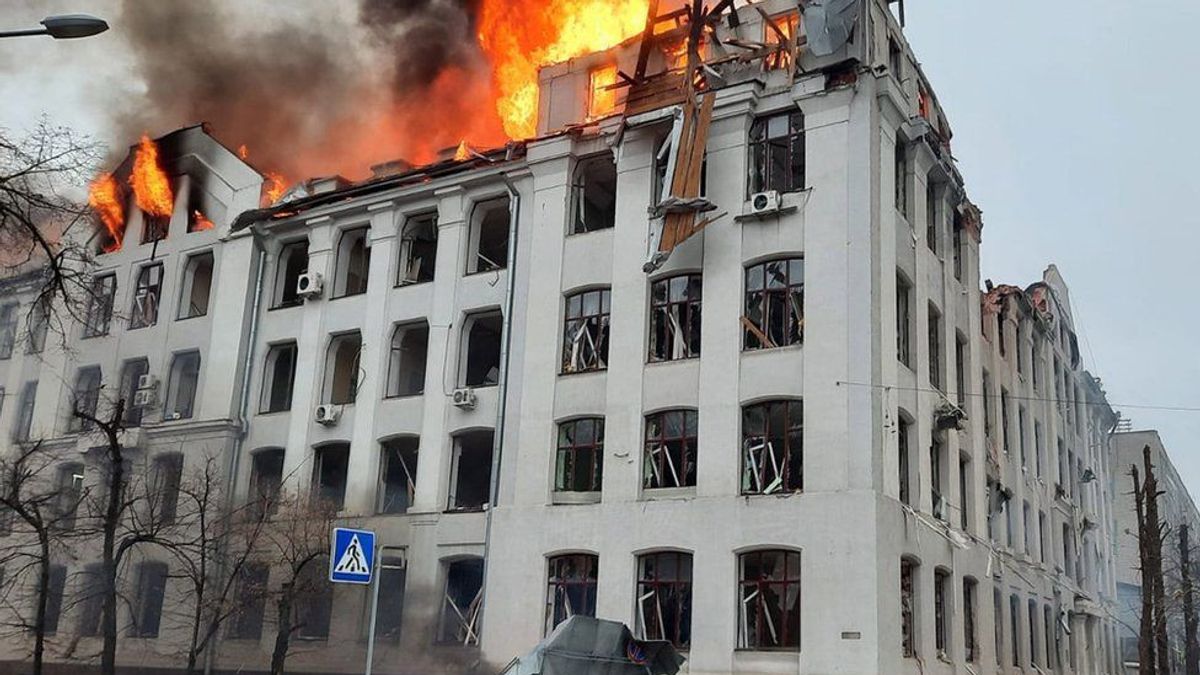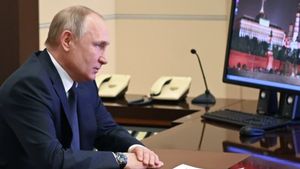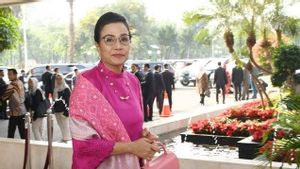
JAKARTA – On March 24, it was a month after the Russia-Ukraine war broke out. The war has shown no sign of stopping, despite efforts to negotiate a ceasefire.
If traced back, the Russo-Ukrainian conflict occurred as a result of a decision that was seen as a betrayal of an agreement. After the dissolution of the Soviet Union in 1991, the countries that were originally under it fell apart.
Russia as the largest country in the era of the Soviet Union still wants to control their "brothers" who freed themselves. Russia then established the Commonwealth of Independent States (CIS), by inviting 11 countries that had joined the Soviet Union. Those countries are Armenia, Azerbaijan, Belarus, Kazakhstan, Kyrgyzstan, Moldova, Russia, Tajikistan, Turkmenistan, Ukraine, and Uzbekistan.
The goal is clear, to continue to strengthen the Eastern Bloc after the dissolution of the Warsaw Pact. The CIS as a new pact was formed to prevent the North Atlantic Treaty Organization (NATO) led by the United States from expanding its influence in Eastern Europe after the collapse of the Soviet Union.

Even though the Soviet Union had disbanded, Russia as the largest country from the former Soviet Union did not want to just change direction. Russia does not automatically become liberal. They still adhere to the principles of a socialist state, although they no longer adhere to communist ideology.
In the era of Mikhail Gorbachev's leadership in the late 1980s, the Soviet Union, which was on the verge of collapsing, was slightly inclined to the West. As the last Soviet President, Gorbachev echoed the concept of The Common European Home which essentially wanted to form a great alliance between the United States, Western Europe, and Russia.
Gorbachev's concept contradicted the Brezhnev Doctrine issued by his predecessor, Leonid Brezhnev. The Brezhnev doctrine was Soviet foreign policy that held that a threat to any country within the Soviet socialist bloc was a threat to all. Other socialist states are justified in intervening if the threat exists.
Gorbachev's concept of openness turned the Soviets into chaos. Glasnost and perestroika eat their mother. The Soviet Union disbanded, the United States and its allies in NATO seemed to find a toll road to cram influence into the confused former Eastern Bloc countries.
Ukraine's Important Position
The former President of Russia from 1991 to 1999, Boris Yeltsin, once expressed his views on Ukraine.
"Without Ukraine, it is impossible to imagine Russia," Yeltsin said.
Two decades ago, Polish-blooded former political adviser to US President Lyndon B. Johnson, Zbigniew Brzezinski, also underlined the geopolitical role of Ukraine towards Russia.
“Russia can choose to be a democracy or a monarchy, but it can't be both. Without Ukraine, Russia ceases to be an empire. But with Ukraine being subjugated and subordinated, Russia automatically becomes an empire," said Brzezinski, as written by Sandeep Tripathi, Doctor of Political Science from Jawaharlal Nehru University, New Delhi, India in the journal International Affairs Forum (IAF).

It is clear here that Ukraine is very important to Russia. Geographically, the second-largest country in Europe is the barrier between Russia and Western Europe. Ukraine's proximity to Russia's economic heart in the Volga region makes this country a key geopolitical power of Russia.
Historically, Russia has maintained its geostrategic objectives in the region. Prevents Ukraine from becoming a rival powerhouse. Keeping Ukraine within its sphere of influence and within the CIS trading bloc.
Russia is also using Ukraine to maintain a presence in the Black Sea. Holding control of the port city of Sevastopol on the Crimean Peninsula as a Russian naval base is also strategic and very important.
Ukraine is also very important from an economic point of view because more than 80 percent of gas from Russia is channeled to the EU via Ukraine. The distribution of petroleum through pipelines from Russia and Central Asia to the European Union, as much as 75 percent also through Ukraine. These two things are also important for Ukraine because they become a very large source of income.
Stubborn Brother
In 2014, President Vladimir Putin addressed the Russian Parliament, revealing how precious Russia-Ukraine relations are.
“Millions of people go to bed in one country, and when they wake up they are already in a foreign country. Some became ethnic minorities in the former Soviet Union. Our souls are hurt by what happened in Ukraine. We are one people, and we cannot live without each other," Putin said.
The direct cause of the protracted conflict between Russia and Ukraine was the former Ukrainian President, Viktor Yanukovych's rejection of an economic deal with the European Union. Instead, Yanukovych accepted an offer of $15 billion in aid from Russia. Yanukovych's attitude immediately sparked political turmoil in Ukraine, and he was ousted from his seat through the Orange Revolution in 2004.

“The action of the pro-Western and Ukrainian nationalist coalition trying to control Kyiv is an insult to Russia. In the eyes of the Kremlin, this action could threaten the cultural, linguistic, and ethnic identity of Russia. This act is a provocation for Putin, who directly intervened in the civil war in Ukraine," said Damitri Trenin, director of the Carnegie Moscow Center, the Russian government's political think tank.
The civil war in the Donbass region and the Crimean Peninsula in 2014, apparently was not enough to make Ukraine give up. They continue to be stubborn and fight Russia, the old brother.
The Russian-Ukrainian 2022 war, which has lasted a month, is again proof that Ukraine is a very important neighbor for Russia. Russia is ready to do whatever it takes, to ward off Ukraine's intention to be intimate with the western bloc and join NATO.
SEE ALSO:
The English, Chinese, Japanese, Arabic, and French versions are automatically generated by the AI. So there may still be inaccuracies in translating, please always see Indonesian as our main language. (system supported by DigitalSiber.id)

















